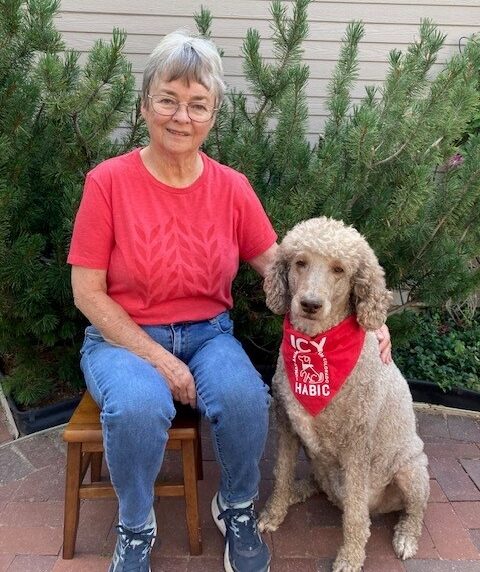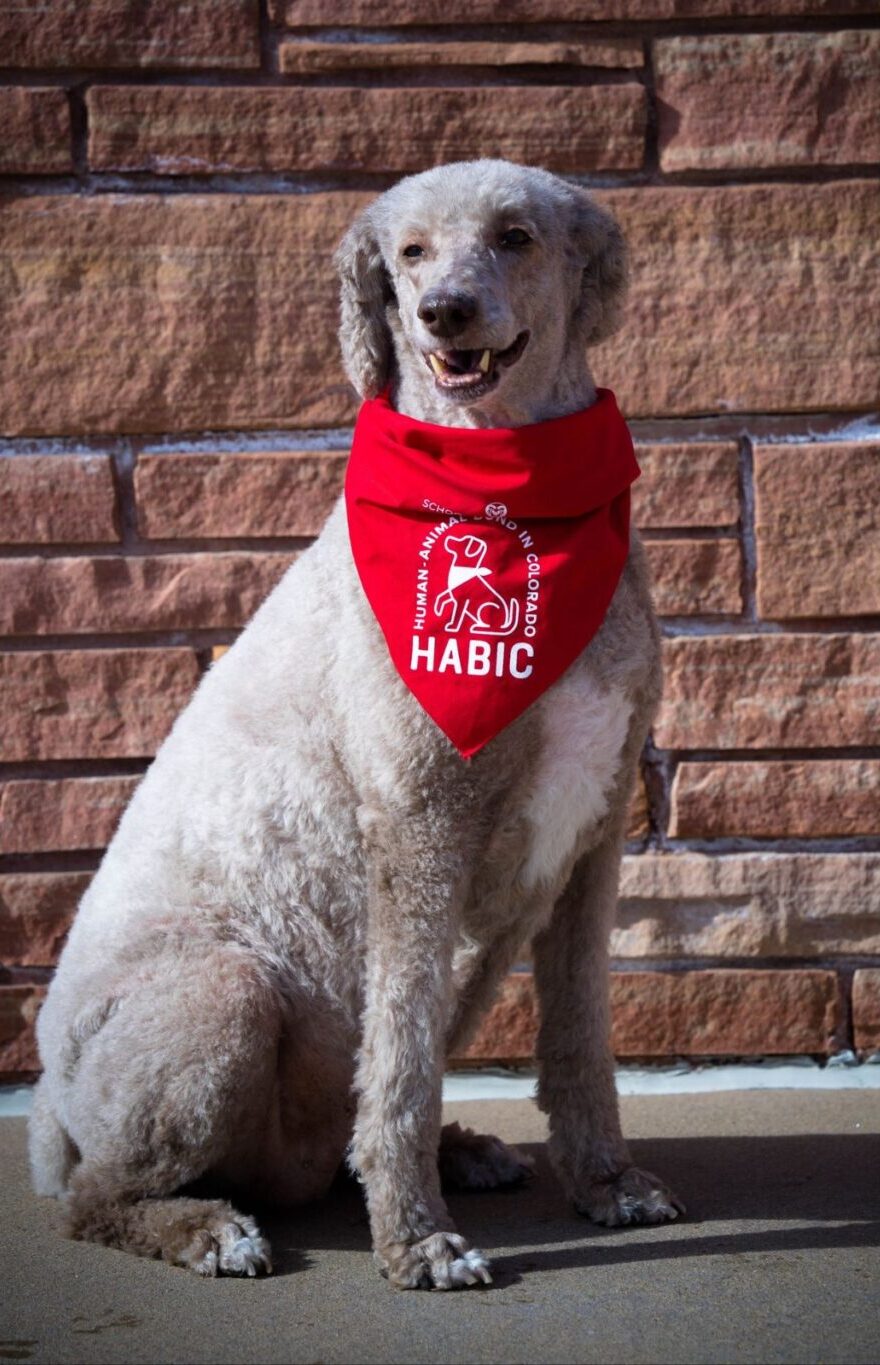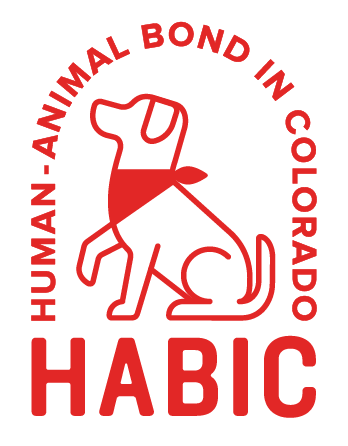Icy started out life as a well-loved breeding dog. She was ready for retirement when Human-Animal Bond in Colorado – HABIC volunteer Ann Kusic and her husband decided to adopt this sweet Standard Poodle, with the softest light grey-colored coat that inspired her name. Now they’re making a difference as a therapy dog team at Presbyterian-St. Luke’s Medical Center and The Denver Hospice.
Story by Rebecca Rowlison
“We applied to be ‘guardians’ when she was six years old,” said Kusic. “Her owners preferred to have their breeding dogs live in real homes. She had one more litter of puppies and then was officially retired.”
Kusic had learned about HABIC when she volunteered at The Denver Hospice. She saw the smiles that therapy dogs were bringing to everyone, and decided to sign up to become a certified therapy animal team with Icy.
The fact that the next available training cohort was in Fort Collins didn’t stop Kusic, who lives in Denver. “In spite of the long drive to Fort Collins every week, I really enjoyed the training classes,” she said. “I learned so much about Icy in the classes and I know I improved in my communication with Icy.”

So in January 2021, at nine years old, Icy came out of retirement to start a new career as a therapy dog. She has been excited about it ever since.
“When it is time to leave for our assignments, I get out our gear and ask Icy if she wants to go for a ride in the car and see people,” said Kusic. “Although she is an older lady, she goes airborne with excitement every time!”
Making a difference as a therapy dog team
Some of Ann’s favorite experiences working as a HABIC team with Icy include listening while people talk about their own dogs. These interactions allow individuals to give voice to feelings and can help them in dealing with stress.

“One of my longest conversations was with an older man, an employee for the hospital, who was sitting in the lobby at the end of his workday,” said Kusic. “He motioned for us to come over, and we spent 30 minutes reminiscing about his dog who died last fall. He just hugged Icy and cried. It was all I could do to hold it together.”
Working with HABIC continues to be a rewarding experience for Ann and Icy. “The whole experience is so positive. Every day is different, but I always come home feeling like it was time well spent.”
As a therapy dog handler, Ann has continued to develop her relationship with Icy and regularly advocates for her animal partner. “Icy enjoys the interaction—total strangers rub her ears!—however, she is very clear when she is ‘done,’ and we come home,” said Kusic. “She always takes a long nap afterwards!”
Volunteer with HABIC
If you have a friendly dog and want to make a difference in your community together, HABIC offers a hybrid 12-week Therapy Dog Class for new volunteers. The class meets for one hour once a week. The first two classes are entirely online and we learn about dog body language, subtle signs of stress, our training philosophy, and more.
The remaining weeks are hybrid and consist of prerecorded training videos to watch before meeting together in-person to practice the skills from the videos. Upon successfully completing the class, you and your dog will sign up for a final evaluation to become a certified therapy team with HABIC.
Kusic has a tip for teams-in-training who are nearing the final evaluation required for HABIC certification. “Have fun with it and don’t stress too much about the final exam. The HABIC folks want you to succeed and they do everything they can to make this happen. Use the very best treats (roasted chicken for Icy) for the final exam!”
 About Human-Animal Bond in Colorado
About Human-Animal Bond in Colorado
Founded in 1993, Human-Animal Bond in Colorado (HABIC) is a center in the School of Social Work, part of CSU’s College of Health and Human Sciences. HABIC’s mission is to improve the quality of life for people of all ages through the therapeutic benefits of companion animals, with particular focus in the areas of community outreach, teaching, and research.